Toyota 'in no hurry' to reveal fate to workers at Altona, Victoria
AUSTRALIA'S last remaining car manufacturer, Toyota, has embarked on a silent waiting game with its factory workers.
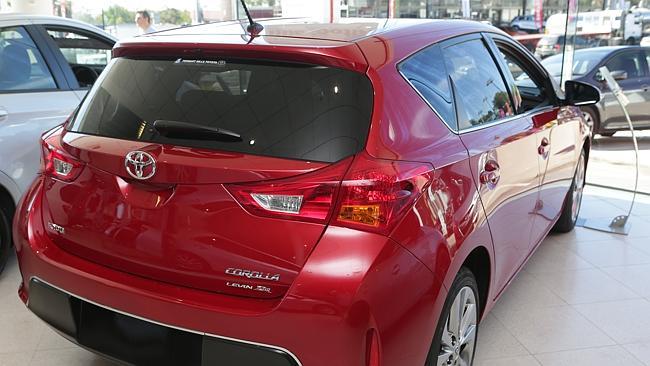
Manufacturing
Don't miss out on the headlines from Manufacturing. Followed categories will be added to My News.
AUSTRALIA'S last remaining car manufacturer, Toyota, has embarked on a silent waiting game with its factory workers.
The company says it is under "unprecedented pressure" to continue its local assembly operations now that Holden and Ford have announced they will shut their factories.
Toyota has twice claimed publicly a decision on its manufacturing future is due by "the middle of the year".
But company insiders say the announcement may be pushed back until later in the year and executives in Japan "are in no hurry" to give workers certainty over their future because the relationship between the factory floor and global headquarters has soured.
News Corp Australia understands that Toyota executives at head office in Japan were disappointed that Altona factory workers did not agree to proposed changes to overtime bonuses and conditions in December.
Under the proposal, workers got to keep two pay rises this year - 3.25 per cent in April and 2 per cent in September - but had to agree to cuts to other bonuses and penalty rates, and adopt greater shift flexibility.
The two most senior Toyota executives in Australia, Max Yasuda and Dave Buttner, travelled to Japan in December hoping to have a signed contract from workers agreeing to the changes.
But Toyota workers were blocked from voting after a Federal Court ruling, which Toyota has appealed.
The fate of Toyota's Altona factory now seems a formality given that the Federal Government has indicated Toyota will not get any extra funding, and workers are reluctant to agree to changes which the company says are crucial to saving $3800 from the production cost of each vehicle.
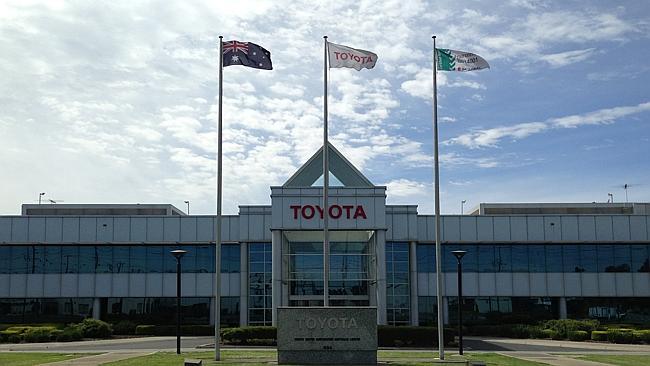
If Toyota were to close its factory, it would likely happen in 2018, a year after Holden and when the current Camry is due to reach the end of its production cycle.
It would be a significant decision to close Altona given that Toyota has only shut two factories in the world: one in the US after the Global Financial Crisis, and a New Zealand assembly line in the 1990s.
Australia was the first export market for Toyota (with the privately imported LandCruiser) and the first country outside Japan where it assembled vehicles, starting with the Corolla in 1968.
Toyota Australia's executive director of sales and marketing Tony Cramb admits the situation is dire but insisted "the writing is not on the wall".
But Mr Cramb said Holden's decision to end manufacturing in 2017 "puts unprecedented pressure on Toyota and makes it more difficult for us to be the sole manufacturer here in Australia".
Toyota's predicament comes as official figures show an all-time high of 1,136,227 cars were delivered in 2013 - the sixth time in seven years to eclipse the 1 million mark - but production of locally-made vehicles fell to their lowest levels since 1958.
The results proved a mixed blessing for Toyota, which was market leader for the 11th year in a row and had Australia's top-selling car, the Corolla, for the first time ever.
But with 67 brands on sale in Australia (compared to 38 in North America and 42 in the UK) the new-car market is now so fragmented that there is not enough volume to justify local production.
The Corolla led the 2013 market having sold less than half as many cars as the Holden Commodore did annually when it was market leader for 15 years.
Ford and Holden last year announced they were closing their manufacturing operations in 2016 and 2017 respectively because low tariffs and the strong Australian dollar favoured imported vehicles.

It means Australian car buyers are spoiled for choice but it makes it impossible to manufacture locally because there is not enough domestic demand for any one vehicle, and exports are unprofitable.
Despite the booming market, sales of the locally-made Toyota Camry are down 8.7 per cent, joining the continued decline of the Holden Commodore and Ford Falcon, which both posted record 35-year and 53-year lows respectively.
Adding to the pressure facing the locally-made Camry, sales of regular passenger cars fell below 50 per cent for the first time ever.
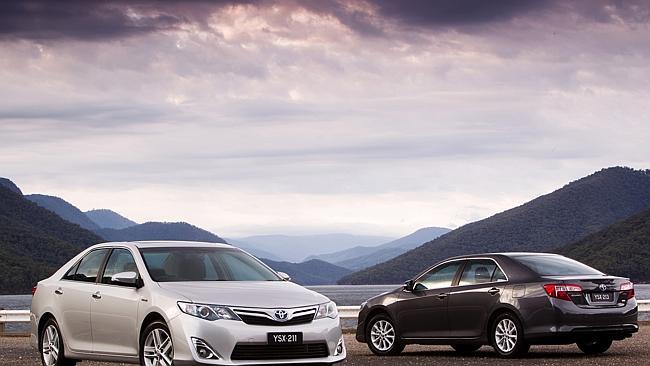
Meanwhile, sales and SUVs, utes and vans reached all-time highs, with more than 333,500 SUVs delivered and 204,500 utes and vans.
The traditional role of SUVs and utes are "being morphed" with passenger cars, said the chief executive of the Federal Chamber of Automotive Industries, Tony Weber.
"I think the demarcation we've had historically in the market between passenger motor vehicles, light commercials and SUVs is starting to morph," said Mr Weber.
SUVs and utes had more safety features and were more car-like to drive than ever before, and offered "greater flexibility" for people's needs.
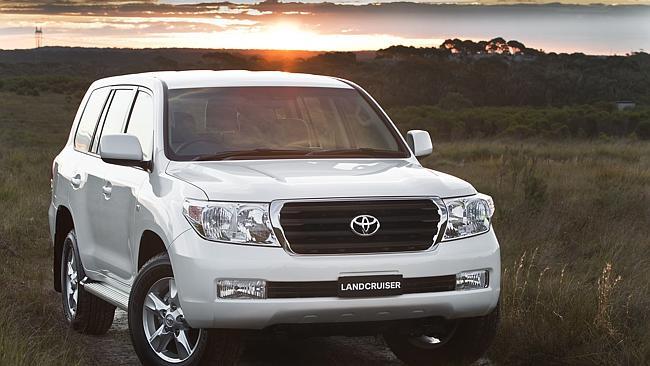
There were four utes among the Top 10 sellers for the first time ever, but not one SUV made the cut, partly because there are now so many on sale; the Mazda CX-5 ranked 11th overall by a narrow margin behind the Ford Ranger.
The FCAI predicts 2014 will be another record year, with 1,145,000 sales.
However, Mr Cramb said new-car sales in 2013 would have been higher if not for changes to Fringe Benefits Tax rules proposed by the former Labor Government.
"The FBT announcement made by the former government definitely slowed down business sales … there are many companies still just making their way back to normal purchases," said Mr Cramb.
He said it took the market "a lot longer than we had anticipated" to recover form the botched plan that would have quadrupled the tax on company cars.
"Companies have extended leases, delayed purchasing decisions, and rather than coming back once … the new Government made it clear they were going to implement previous Government's policies, there was a scepticism in the market among the big fleet companies."
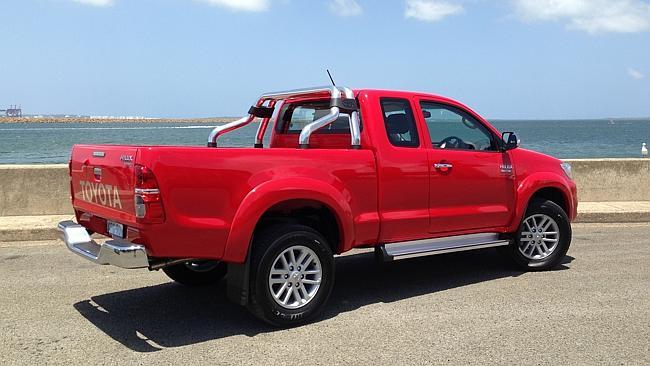
FACTBO X:
* Toyota has sold more than 40 million Corollas worldwide, including 1.25 million in Australia since 1967.
* The Corolla won the 2013 new-car sales race after swapping the monthly sales lead three times with reigning champion the Mazda3.
* The Mazda3 led the first three months of the year before the Corolla landed its first win for 2013 in April, and then led the year-to-date tally for the first time in June.
* In the end, the Corolla was the top selling car for eight months of the year, including the last four in a row.
* Incredibly, it was only the Corolla's fifth-best result (record was 47,792 set in 2007), another sign of the fragmenting market that is killing local car manufacturing.
* Korean car maker Hyundai ranked fourth overall but was the second-biggest seller of passenger cars in Australia in 2013.
* Mercedes-Benz won the luxury car sales category, outselling BMW and Audi. The Mercedes-Benz C-Class sedan was the third best-selling medium-size sedan behind the Toyota Camry and Mazda6.


